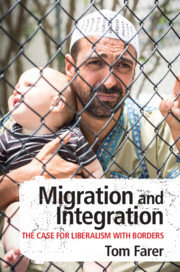Book contents
6 - France
from Part II - Exemplary National Experiences
Published online by Cambridge University Press: 15 November 2019
Summary
The Republic’s legitimacy rests in part on the French Revolution’s founding declaration of one nation inspired by the goal of liberty, equality, and fraternity. Construing fraternity as collective adherence to French culture, the country’s political and intellectual leaders harbor deep suspicion of other strong collective identities. In recent decades Islam has replaced the Catholic Church as the main object of anxiety. The country’s obsession with signs of Islamic identity such as burkas, niqabs, and burkinis has a second root, namely, an enduring sense of incompatibility between the norms and practices of North African Muslims, the primary constituent of its migrant-background population, and those of the legacy French defined to include assimilated Jewish, Spanish, and other non-Muslim migrants. Voiced early in the nineteenth century by Alexis de Tocqueville, it is expressed today by socialists like Manuel Valls, conservatives like Nicholas Sarkozy, and intellectuals like Alain Finkielkraut. Yet polling shows most Muslims feel French, albeit as objects of discrimination. The state shows some signs of accepting the need to battle that discrimination, but economic stagnation and the deteriorating condition of the lower middle class, along with outbursts of jihadi terrorism, obstruct implementation of a successful integration strategy.
- Type
- Chapter
- Information
- Migration and IntegrationThe Case for Liberalism with Borders, pp. 123 - 152Publisher: Cambridge University PressPrint publication year: 2019



